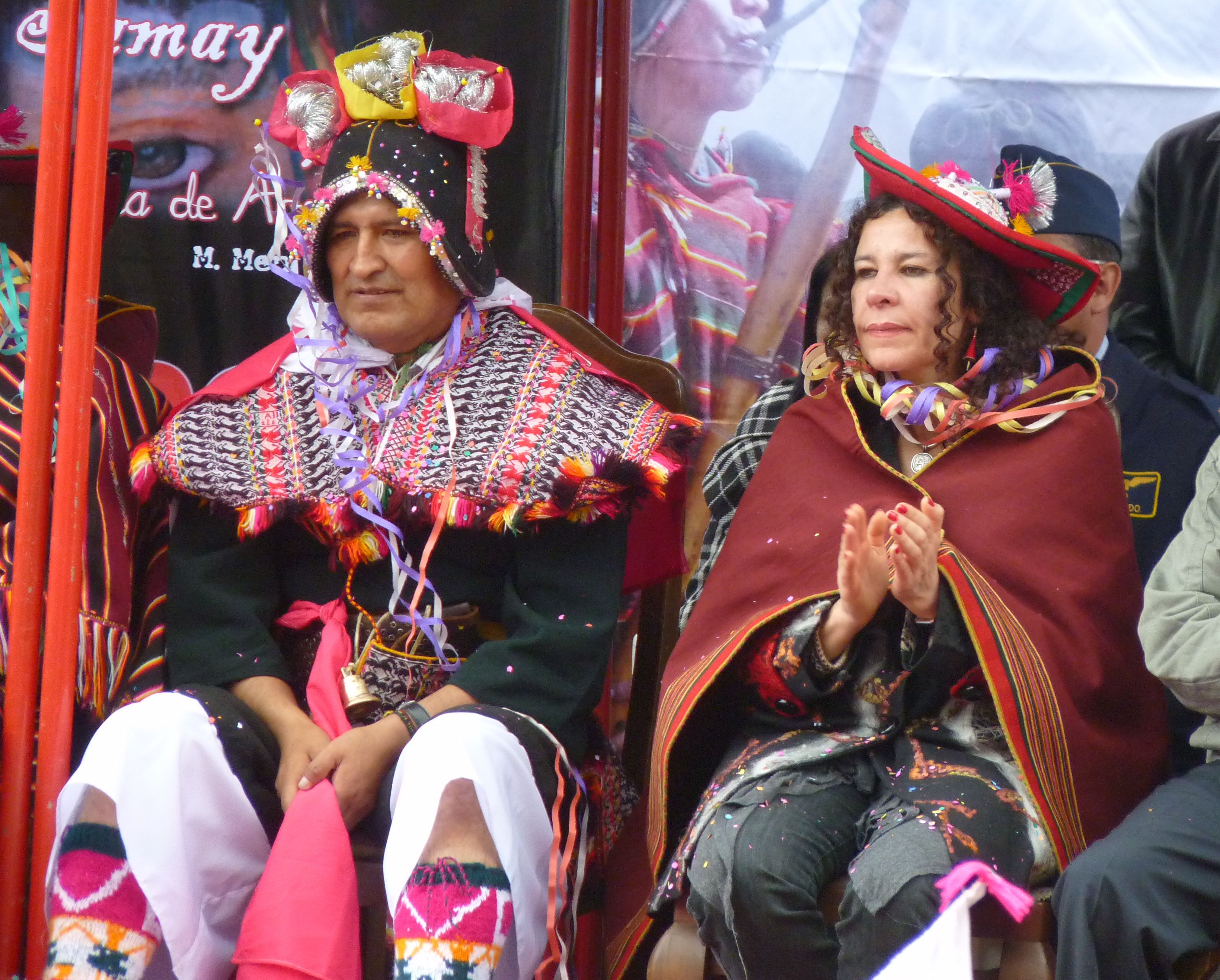Pukllay on:
[Wikipedia]
[Google]
[Amazon]
 Pukllay or phukllay (
Pukllay or phukllay (
 Pukllay or phukllay (
Pukllay or phukllay (Quechua
Quechua may refer to:
*Quechua people, several indigenous ethnic groups in South America, especially in Peru
*Quechuan languages, a Native South American language family spoken primarily in the Andes, derived from a common ancestral language
**So ...
for to play, play / carnival, other spellings ''pucllay, pugllay, phujllay, pujhllay, pujllay, puqhllay'') is a traditional festival held in the central Andes
The Andes, Andes Mountains or Andean Mountains (; ) are the longest continental mountain range in the world, forming a continuous highland along the western edge of South America. The range is long, wide (widest between 18°S – 20°S ...
. The word "play" refers to either the clouds or the blossoms "playing" in the winds at the end of the rainy season and thus harvesting time. The Bolivian ''Pukllay'' is connected to the Christian carnival and the celebration of a battle won over the Spaniards – hence the appropriation of the Spanish helmets and spurs one can still see in the ritual dance.
In March 2011, Bolivia nominated the ''Pukllay'' festival in Tarabuco
Tarabuco is a Bolivian town in the department of Chuquisaca Department, Chuquisaca, capital of the Yamparáez Province and its first section, Tarabuco Municipality. It is best known as the home of the Yampara culture. Its people host the Pujllay f ...
(including the Ayarichi dance of the Yampara people) to UNESCO
The United Nations Educational, Scientific and Cultural Organization is a specialized agency of the United Nations (UN) aimed at promoting world peace and security through international cooperation in education, arts, sciences and culture. It ...
for World Heritage
A World Heritage Site is a landmark or area with legal protection by an international convention administered by the United Nations Educational, Scientific and Cultural Organization (UNESCO). World Heritage Sites are designated by UNESCO for h ...
recognition as part of the cultural and intangible heritage
An intangible cultural heritage (ICH) is a practice, representation, expression, knowledge, or skill considered by UNESCO to be part of a place's cultural heritage. Buildings, historic places, monuments, and artifacts are cultural property. In ...
of humanity.
References
Bolivian culture Cultural festivals in Bolivia Peruvian culture Harvest festivals Folk festivals in Bolivia Native American festivals {{festival-stub